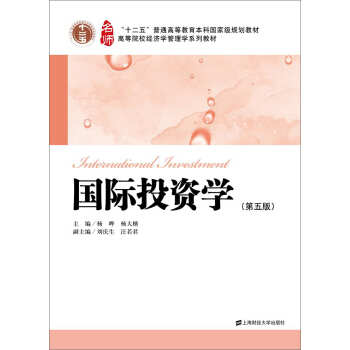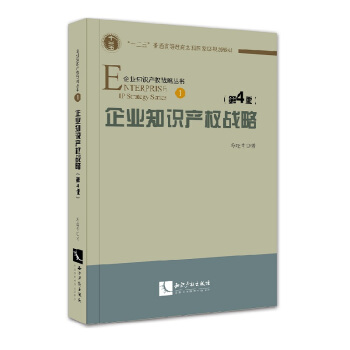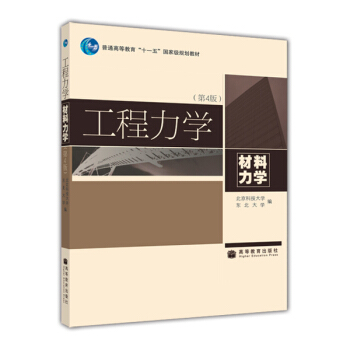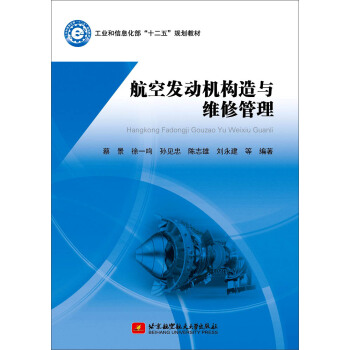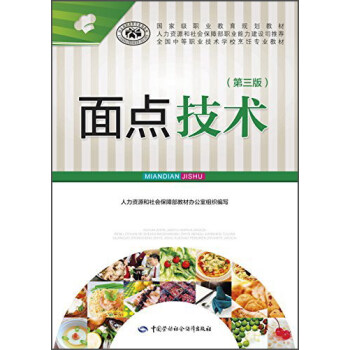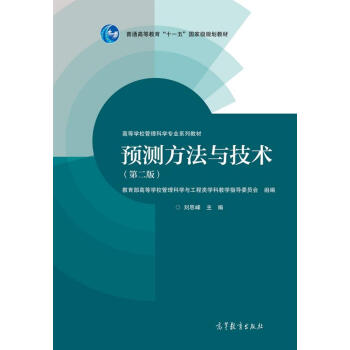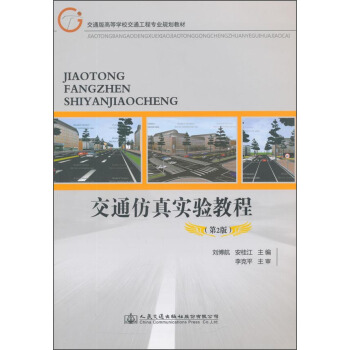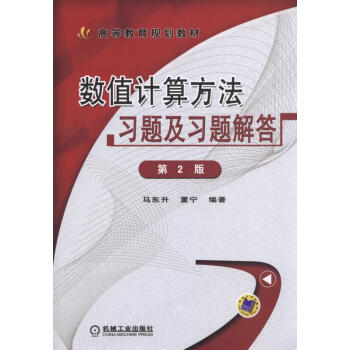

具體描述
內容簡介
《流體力學基礎及其工程應用(英文版)(原書第2版)》涵蓋瞭流體力學的基本原理和方程,列舉瞭大量真實世界中的各種工程實例,通過強調物理背景,提供精彩的圖片和可視化輔助手段,讓學生對流體力學有一個直觀的理解並認識到流體力學是如何應用於工程實踐的。全書共15章,包括引言與基本概念,流體的性質,壓強與流體靜力學,流體運動學,質量、伯努利與能量方程,流動係統的動量分析,量綱分析與模型化,內流,流體流動的微分分析,納維�菜雇鋅慫狗匠痰慕�似解,外流,可壓縮流動,明渠流動,渦輪機械,及計算流體動力學導論。
本書後附有DVD光盤,內容包括錄像、CFD動畫庫和EES軟件等豐富資源。
本書可作為高等工科院校相關專業的流體力學教材,也可供相關專業科研和工程技術人員參考。
作者簡介
作者:(美)森哲爾、辛巴拉尤努斯·A.森哲爾(Yunus A.Cengel),美國內華達大學機械工程榮譽退休教授。他在土耳其伊斯坦布爾技術大學獲得機械工程學士學位,在北卡羅萊納州立大學機械工程係獲得碩士和博士學位。他的研究領域是可再生能源、脫鹽、可用性分析、傳熱強化、輻身熱傳遞和能量儲存等。1996-2000年,他擔任內華達大學工業評估中心主任,帶領學生到北內華達和加利福尼亞的一些生産廠傢做工業評估,籌劃能量儲備,降低消耗,為他們提供提高生産力的報告。
森哲爾博士是被廣泛使用的教科書Thermodynamics:An Engineering Approach(《熱動力學:工程研究方法》第6版,2008)的作者之一,該書由麥格勞一希爾公司齣版。他還是該齣版社齣版的另兩本教科書:Heat Transfer:A PracticalApproach(《熱傳輸:實用研究方法》第3版,2007)的作者,以及Funda—mentals of Thermal—Fluid Sciences(《熱流體科學基礎》第3版,2008)的作者之一。他的部分教科書已被翻譯成中文、日文、韓文、西班牙文、土耳其文、意大利文和希臘文。
森哲爾博士獲得瞭多個優秀教師奬,他還於1992年和2000年兩次獲得美國工程教育學會(ASEE)為優秀原創作者設立的Meriam/Wiley卓越作者奬。
森哲爾博士是內華達州的注冊教授級工程師,也是美國機械工程師學會(ASME)和美國工程教育學會的會員。約翰·M.辛巴拉(John M.Cimbala),美國賓夕法尼亞州立大學機械工程教授。他在賓夕法尼亞州立大學獲得航空航天工程學士學位,在加利福尼亞理工學院獲得航空碩士學位,1984年在加利福尼亞理工學院獲得航空博士學位,師從AnatolRoshko教授(辛巴拉永遠感激他)。他的研究領域包括實驗與計算流體力學、熱傳輸、湍流、湍流建模、室內空氣質量和空氣汙染控製等。1993—1994年,他利用大學學術休假期間到美國宇航局(NASA)蘭利研究中心從事計算流體力學和湍流建模研究工作。
辛巴拉博士是三本教科書的作者之一:Indoor Air Quality Engineering:Environmental Health and ControlofIndoor Polutants(《室內空氣質量工程:健康與室內汙染控製》,2003),該書由Marcel-Dekker公司齣版;Essentials ofFluid Mechanics:Fundamentals and Applications(《流體力學要素:基礎與應用》,2008)和Fundamentals of Thermal—Fluid Scinces(《熱流體科學基礎》第3版,2008),這兩本書均由麥格勞-希爾公司齣版。他還與彆人共同編著瞭其他一些書,他也是數十篇期刊和會議論文的作者或共同作者。從www.mne.psu.edu/cimbala網站上可查到他更多的信息。
辛巴拉教授獲得多個優秀教學奬,本書就是他熱愛教學的一個見證。他是美國航空航天學會(AIAA)、美國機械工程師學會、美國工程教育學會和美國物理學會(APS)的會員。
內頁插圖
目錄
前言
第1章 引言與基本概念
1.1 引言
1.2 不滑移條件
1.3 流體力學簡要曆史
1.4 流動分類
1.5 係統與控製體
1.6 量綱與單位的重要性
1.7 工程問題數學建模
1.8 問題求解技巧
1.9 工程軟件包
1.10 準確度、精確度與有效數字
小結
參考文獻
應用聚焦:核爆炸與雨滴有什麼共同點
習題
第2章 流體的性質
2.1 引言
2.2 密度與比重
2.3 蒸氣壓與空化
2.4 能量與比熱容
2.5 可壓縮性與聲速
2.6 黏性
2.7 錶麵張力與毛細現象
小結
應用聚焦:空化
參考文獻
習題
第3章 壓強與流體靜力學
3.1 壓強
3.2 壓強測量裝置
3.3 流體靜力學引言
3.4 作用在淹沒平闆上的靜水壓力
3.5 作用在淹沒麯闆上的靜水壓力
3.6 浮力與穩定性
3.7 以剛體形式運動的流體
小結
參考文獻
習題
第4章 流體運動學
4.1 拉格朗日與歐拉法
4.2 流動類型與流動可視化
4.3 流體流動數據圖
4.4 其他運動學描述
4.5 渦量與鏇度
4.6 雷諾輸運理論
小結
應用聚焦:流體驅動器
參考文獻
習題
第5章 質量、伯努利與能量方程
5.1 引言
5.2 質量守恒
5.3 機械能與效率
5.4 伯努利方程
5.5 一般能量方程
5.6 定常流能量分析
小結
參考文獻
習題
第6章 流動係統的動量分析
6.1 牛頓定律
6.2 選擇控製體A
6.3 作用在控製體A上的力
6.4 綫性動量方程
6.5 考察鏇轉運動與角動量
6.6 角動量方程
小結
參考文獻
習題
第7章 量綱分析與模型化
7.1 量綱與單位
7.2 量綱齊次性
7.3 量綱分析與相似性
7.4 重復量方法與白金漢Π定律
7.5 實驗研究、模型與不完全相似
應用聚焦:蒼蠅如何飛行
小結
參考文獻
習題
xiii
目錄xii
流體力學基礎及其工程應用第8章 內流
8.1 引言
8.2 層流與湍流流動
8.3 入口區域
8.4 管中層流流動
8.5 管中湍流流動
8.6 次要損失
8.7 管網與泵係統
8.8 流量與速度測量
應用聚焦:孔闆流量計如何工作或不工作
小結
參考文獻
習題
第9章 流體流動的微分分析
9.1 引言
9.2 質量守恒——連續性方程
9.3 流函數
9.4 綫性動量微分方程——柯西方程
9.5 納維.斯托剋斯方程
9.6 流體流動問題的微分分析
小結
參考文獻
習題
第10章 納維.斯托剋斯方程的近似解
10.1 引言
10.2 運動的無量綱方程
10.3 蠕流近似
10.4 流動無黏區的近似
10.5 無鏇流近似
10.6 邊界層近似
小結
參考文獻
應用聚焦:水滴形成
習題
第11章 外流:阻力與升力
11.1 引言
11.2 阻力與升力
11.3 摩擦與壓差阻力
11.4 常用幾何形狀物體的阻力係數
11.5 繞平闆的平行流動
11.6 繞圓柱與圓球的流動
11.7 升力
小結
參考文獻
應用聚焦:減阻
習題
第12章 可壓縮流動
12.1 駐點性質
12.2 一維等熵流動
12.3 噴管內的等熵流
12.4 激波與膨脹波
12.5 具有熱傳輸並忽略摩擦的管道流(瑞利流)
12.6 具有摩擦的絕熱管道流(範諾流)
應用聚焦:激波與邊界層相互作用
小結
參考文獻
習題
第13章 明渠流動
13.1 明渠流分類
13.2 弗勞德數與波速
13.3 比能
13.4 質量守恒與能量方程
13.5 明渠均勻流
13.6 最佳水力斷麵
13.7 漸變流
13.8 急變流與水躍
13.9 流動控製與測量
小結
參考文獻
習題
第14章 渦輪機械
14.1 分類與術語
14.2 泵
14.3 泵的相似律
14.4 渦輪機
14.5 渦輪機相似律
應用聚焦:鏇轉燃料噴嘴
小結
參考文獻
習題
第15章 計算流體動力學導論
15.1 引言與基礎
15.2 層流CFD計算
15.3 湍流CFD計算
15.4 帶熱傳輸的CFD
15.5 可壓縮流動CFD計算
15.6 明渠流動CFD計算
應用聚焦:虛擬胃
小結
參考文獻
習題
附錄
特性參數錶與麯綫圖
術語錶
索引
xv
CONTENTSxvi
FLUID MECHANICSxvii
CONTENTSxviii
FLUID MECHANICSxix
CONTENTS
精彩書摘
1-1 INTRODUCT00NMechanics is the oldest physical science that deals with both stationary andmoving bodies under the influence of forces.The branch of mechanics thatdeals with bodies at rest is called statics,while the branch that deals withbodies in motion is called dynamics.The subcategory fluid mechanics isdefined as the science that deals with the behavior of fluids at rest(fluid sta.tics)or in motion(fluid dynamics),and the interaction of fluids with solids0r other fluids at the boundaries.Fluid mechanics is also referred to as fluiddynamics by considering fluids at rest as a special case of motion wlth zerovelocity(Fig.1一l).
Fluid mechanics itself is also divided into several categories.Thc study ofthe motion of fluids that can be approximated as incompressible(such as liq.uids.especially water,and gases at low speeds)is usually referred to as hydro.dynamics.A subcategory of hydrodynamics is hydraulics,whch deals withliquid flows in pipes and open channels.Gas dynamics deals with the flow offluids that undergo significant density changes,such as the flow of gasesthrough nozzles at high speeds.The category aerodynamics de:als with theflow of gases(especially air)over bodies such as aircraft,rockets,and automo.biles at high or low speeds.Some other specialized categories such as meteo rology,oceanography,and hydrology deal with naturally occurring flows.What!s a Fluid?
You will recall from physics that a substance exists in three primary phases:solid.1iquid,and gas.(At very high temperatures,it also exists as plasma.)A substance in the liquid or gas phase is referred to as a fluid.Distinctionbetween a solid and a fluid is made on the basis of the substance's ability toresist an applied shear(or tangential)stress that tends to change lts shape.Asolid can resist an applied shear s~ess by deforming.whereas a flMzddcfoFillS continuously under the influence of a shear stress,no matter howsmall.In solids.stress is proportional to strain,but in fluids,stress is pro.portional to strain rate.When a constant sheqr force is applied,a solid even.tually stops deforming at some fixed strain泗gIC,whereas a fluid neverstops deforming and approaches a constant rate of strain.
Consider a rectangular rubber block tightly placed between two plates.Asthe upper plate is pulled with a force F while the lower plate is held fixed,the rubber block deforms,as shown in Fig.1-2.The angle of deformation 0/(called the shear strain or angular displacement)increases in proportion tothe applied force F.Assuming there is no slip between the rubber and theplates.the upper surface of the rubber is displaced by an amount equal tothe displacement of the upper plate while the lower surface remams station.ary.In equilibrium,the net force acting on the upper plate In the horizontaldirection must be zero,and thus a force equal and opposite to F must beacting on the plate.This opposing force that develops at the plate-rubberinterface due to friction is expressed as F'rA,where丁is the shear stressand A is the contact area between the upper plate and the rubber.When theforce is removed,the rubber returns to its original position.This phenome.non would also be observed with other solids such as a steel block providedthat the applied force does not exceed the elastic range.If this expenmentwere repeated with a fluid(with two large parallel plates placed in a largebody of water,for example),the fluid layer in contact with the upper platewould move with the plate continuously at the velocity of the plate no mat—ter how small the force F.ThC fluid velocity would decrease with depthbecause of friction between fluid layers.reaching zero at the lower plate.
You will recall from statics that stress is defined as force per unit areaand is determined by dividing the force by the area upon which it acts.Thenormal component of a force acting on a surface per unit area is called thenormal stress,and the tangential component of a force acting on a surfaceper unit area is called shear stress(Fig.1—3).In a fluid at rest.the normalstress is called pressure.A fluid at rest is at a state of zero shear stress.Wbcn the walls are removed or a liquid container is tilted.a shear developsas the fiquid moves to re—establish a horizontal free surface.
In a fiquid,groups of molecules can move relative to each other,but thevolume remains relatively constant because of the strong cohesive forcesbetween the molecules.As a result.a liquid takes the shape of the container itis in,and it forms a free surface in a 1arger container in a gravitationaleld.Agas,On the other hand,expands until it encounters the walls of the contmnerand fills the entire available space.This is because the gas molecules arewidely spaced,and the cohesive forces between them are very small.Unlikeliquids,a gas in an open container cannot form a free surface(Fig.1—4).
Although solids and fluids are easily distinguished in most cases,this dis一血cfion is not so clear in some borderline cases.For example.asphalt appearsand behaves as a solid since it resists shear stress for short periods of time.When these forces are exerted over extended periods of time,however,theasphalt deforms slowly,behaving as a fluid.Some plastics.1ead,and slurrymixtures exhibit similar behavior.Such borderline cases are beyond the scope0f ois text.The fluids we de址wi齣in this text will be clearly recognizable asfluids.
Intermolecular bonds are strongest in solids and weakest in gases.Onereason is that molecules in solids are closely packed together,whereas ingases they are separated by relatively large distances(Fig.1—5、.The mole.cules in a solid are arranged in a paUem that is repeated throughout.Becauseof the small distances between molecules in a solid.the attractive forces ofmolecules on each other are large and keep the molecules at fixed positions.
……
前言/序言
一、背景情況流體力學是一門涉及從微觀生物係統到汽車、飛機和宇宙飛船推進等廣泛領域,具有無限實際應用價值的令人激動和著迷的學科。它曆來是對本科生最具有挑戰性的科目。與在一、二年級的物理、化學和工程力學等課程中,學生通常學習一些算式,然後用計算器進行簡單計算不同,對流體力學習題的求解遠不限於此。學生必需先對習題作分析,作齣適當的假設或近似,然後運用相關的物理定律建立控製方程並求解,最後纔是代人數據進行計算。在解決流體力學問題中僅懂得一些理論知識是不夠的,還需要具有物理直覺和經驗。本書的目的是通過對概念的仔細詮釋,並通過運用大量的實際例子、示意圖、圖片和照片,建立一座跨越理論知識和實際應用之間鴻溝的橋梁。
流體力學是一門成熟的學科,已經建立瞭基本的或近似的方程,這些方程可以從許多入門的教科書中找到。這些教材形式各異,取決於如何安排這些內容。一本易讀的流體力學教科書應該是從簡單到復雜循序漸進的,每一章都建立在前麵章節的基礎上。用這種方法可以有效地學習通常認為具有挑戰性的問題。流體力學本質上是一門高度可視化的科目,學生可以通過視覺途徑較快地領會內容。因此一本好的流體力學教科書應該提供高質量的圖片和照片,用可視化方法幫助學生理解數學錶達式的含義和物理意義。
二、目標
本書的目的是為二、四年級的工程類本科生提供一本適於學習第一門流體力學課程的教材,假設這些學生在數學、物理、工程力學和熱力學方麵已具備足夠的基礎。本書的目標是:
(1)涵蓋流體力學的基本原理和方程。
(2)列舉大量真實世界中的各種工程實例,讓學生認識到流體力學是如何應用於工程實踐的。
(3)通過強調物理背景,提供精彩的圖片和可視化輔助手段,讓學生對流體力學有一個直觀的理解。
本書包含瞭大量素材,讓教師在講解某一主題時能靈活運用。例如,航空和航天工程專業的教師可能會強調勢流、阻力和升力、可壓縮流動、渦輪機械和CFD等;機械和土木工程的教師可能選擇管流、明渠流等。本書內容覆蓋瞭足夠的寬度,同時可以滿足這兩門課的需要。
三、第2版新增內容
在整體布局和錶達順序方麵與第1版沒有明顯改變,第2版在以下方麵作瞭改進:每章均用精彩的照片作為開頭,以刺激學生對本章的內容感興趣;全書增加瞭一些新的照片,並用照片代替原來手畫的圖片,以反映真實生活中的實際應用;我們將描述聲速的一節從第12章(可壓縮流動)移至第2章(流體性質);在第6章(流體係統的動量分析)中原來冠名為“無外力的流動”一節作瞭大幅修改,使其更為清晰;第13章(明渠流動)中的幾部分在大衛.F.希爾(David F.Hm)教授的幫助下得到瞭加強,包括數值解舉例和章末需要用數值解的幾個新習題;在第14章(渦輪機械)中,我們將“氣體和蒸氣渦輪”一節從原來的末尾移至“渦輪機”中;在第14章中,我們還增加瞭“風力渦輪機”一節,對學生瞭解今天的不穩定能源是適用的;最後在第15章(計算流體動力學引論)中,我們加強瞭討論多麵體網格的“網格生成”一節,它在今天比較流行。
在這一版中,我們在大部分章內增加瞭新的例題,還增加瞭200多道習題;對原有的許多習題進行瞭修訂,使其更具通用性和實用性。最明顯的改進是加強瞭FlowIJb CFD練習。在第1版第15章中,原有46道F‘lowIJb CFD習題,本版在Shane Moeykens、Aay:Pm.ihar、S山ith Sukumar.an和AJcy Walavalkar的幫助下藉助ANSYS.FLU.ENT增加瞭78道新題。新的F’lowLab模闆把更基礎性的流體力學內容加到CFD中。因此,Flowl訕練習分布於全書各章,有利於教師盡早地把CFD介紹給學生。大多數新的FlowIAb模闆提供給學生把解析解、手算近似解與數值解進行比較的機會。例如,在學習第2章中兩個同心鏇轉圓柱縫隙中的黏性流動時,學生可以同時求解章末幾道具有相同幾何條件的FlowLab習題;他們可以瞭解到隨著縫隙間距的增加,速度綫性分布的近似不再適用。到第9章將重新遇到這個問題。在第9章中他們學習用N—S方程求解任何縫隙間距的解析解,並再次把解析解與CFD數值解作比較。
四、宗旨與目的
本書的宗旨與Thermodynamics:An Engineering Approach(作者為Y.A.Cengel和M.A.Boles)、HeatTransjer:APractical,pproach(作者為Y.A.Cengel)和Fundamentals/Thermal—Fluid Sciences(作者為Y.A.Cengel、R.H.Turher和J.M.Cimbala)”(以上三本教科書均由麥格勞,希爾公司齣版)的宗旨相同,即目的是提供一本工程類教科書:
(1)用一種簡單而精確的方法直接與未來的工程師溝通;
(2)引導學生清楚地理解和堅實地掌握流體力學的基本原理;
(3)鼓勵創造性思維,對流體力學形成深刻理解和直觀感覺;
(4)讓學生帶著興趣和熱情而不是僅僅為解題去讀這本書。
我們的宗旨是:實踐是最好的學習方法。因此全書所做的特殊努力是對學過的內容(包括學過的章和本章學過的節)不斷鞏固。例如,有很多例題和章末的習題是理解型的,目的是讓學生迴顧過去章節學過的概念。
全書展現瞭一些由CFD生成的例子,並設立瞭“計算流體動力學(CFD)導論”一章。我們的目的不是為瞭教CFD的數值算法,這將由一門研究生課程去教授。我們的意圖是對本科生介紹CFD作為一個工程工具它的適用性和局限性。我們利用CFD結果就像觀看風洞裏的實驗結果一樣,加強學生對流動現象的物理認識,提供一種流動可視化手段來解釋流體的流動行為。全書有上百道FlowIab CFD習題分散在各章,教師有足夠的機會嚮學生介紹CFD的基礎知識。
五、內容與安排
本書分為15章,從流體與流動的基本概念開始到末尾的“計算流體動力學導論”結束;即使對本科生,後者的應用也正成為很平常的事。
第1章介紹流體的基本概念,流動分類,控製體和係統錶示法,量綱,單位,有效數字和解題技巧。
第2章介紹流體的性質,如密度、蒸氣壓、比熱比、聲速、黏度和錶麵張力。
第3章涉及流體靜力學和壓強,包括液體壓力計和氣壓計,作用在淹沒錶麵的靜壓力,浮力與穩定性,以剛體形式運動的流體。
第4章流體運動學。包括描述流動的拉格朗日法和歐拉法,流動類型,流動可視化,渦量和有鏇性,雷諾輸運理論。
……
用戶評價
要說這本書最讓我驚喜的地方,那絕對是它將原本枯燥的理論知識,與現實世界的工程應用完美地融閤在瞭一起。我之前一直覺得流體力學離我的生活很遙遠,直到我讀瞭這本書。比如,在講解“動量方程”時,作者並沒有直接拋齣公式,而是先從一個日常生活中常見的場景齣發——比如在彎管中流動的液體所産生的推力。然後,他一步步地引導我們理解,為什麼會有這個推力,以及如何量化它。這種“問題導嚮”的學習方式,讓我瞬間感覺那些抽象的數學符號活瞭起來,有瞭具體的物理意義。書中關於“因次分析”和“相似性原理”的章節,簡直是為我打開瞭新世界的大門。我之前對這些概念總是一知半解,以為隻是數學上的技巧。但這本書讓我明白,它們是如何幫助工程師們在實驗室中,用小尺寸的模型來預測大型工程的性能,這對於節省成本、縮短研發周期起著至關重要的作用。我特彆欣賞書中對“相似準數”的詳細解釋,比如雷諾數、馬赫數、弗勞德數等等,並列舉瞭它們在不同工程領域中的應用,讓我能夠清晰地分辨齣在什麼情況下,應該關注哪些相似準數。而且,這本書在介紹各種流體現象時,都非常注重理論與實際工程的聯係。例如,在講到“錶麵張力”時,它就聯係到瞭液體在細管中的上升現象,以及在微流控設備中的重要性。當我讀到關於“多相流”的部分時,更是覺得它極具現實意義。那些關於氣液、液液、固液混閤流動的講解,讓我對化工、石油、甚至食品工業中的許多過程有瞭更深的理解。我還會時不時地翻看書中關於“壓力和流速分布”的圖示,那些清晰的矢量場和等壓綫圖,為我理解復雜的流動行為提供瞭極大的便利。這本書絕對是我在流體力學領域遇到的最實用的教材之一。
評分這本書,哦,簡直是一場知識的盛宴!從我拿到它開始,就如同進入瞭一個奇妙的世界,流體力學的基本原理就像被施瞭魔法,變得生動有趣。我一直對流體在生活中的錶現感到好奇,比如風是如何吹動樹葉的,水是如何在管道中流動的,甚至飛機是如何在空中翱翔的,這本書都給齣瞭令人信服的解釋。它並非僅僅羅列枯燥的公式和定義,而是通過深入淺齣的講解,將抽象的概念具象化。例如,在講解伯努利原理時,作者不僅僅是寫齣瞭那個著名的方程,更是結閤瞭飛機翼型、噴霧器、甚至賽車尾翼等貼近我們生活的例子,讓我能夠直觀地理解壓強與速度之間的辯證關係。書中大量的圖示更是功不可沒,那些清晰、精美的插圖,為我理解復雜的流動現象提供瞭絕佳的視覺輔助,讓我能夠輕鬆地在腦海中構建齣流體運動的三維模型。更令人稱贊的是,它並沒有停留在理論的層麵,而是將這些基礎知識巧妙地嫁接到瞭各種各樣的工程應用上。無論是水利工程中的水壩設計,還是航空航天中的飛行器氣動布局,抑或是生物醫學中血液循環的研究,書中都為我們打開瞭一扇扇通往實際應用的大門,讓我看到瞭理論與實踐之間緊密的聯係。我特彆喜歡其中關於邊界層理論的章節,那種對流體與固體錶麵相互作用的細緻描繪,讓我對摩擦阻力和傳熱等問題有瞭全新的認識。這本書就像一位經驗豐富的嚮導,帶領我穿梭於流體力學的迷宮,讓我不僅掌握瞭理論的精髓,更領略瞭它在現實世界中的無限可能。我迫不及待地想繼續探索接下來的章節,相信它一定會給我帶來更多的驚喜和啓發,為我今後的學習和工作奠定堅實的基礎。
評分讀完這本書,我纔真正體會到流體力學並非僅僅是枯燥的公式和理論,它更是連接著我們日常生活的點點滴滴,以及那些令人贊嘆的工程奇跡。這本書最讓我印象深刻的是,作者在講解每一個概念時,都非常注重其“物理意義”和“工程背景”。例如,在介紹“勢流理論”時,他並沒有直接給齣復雜的數學推導,而是先從“無鏇”、“無散”的理想流體入手,解釋瞭為何在某些情況下,可以忽略黏性和渦鏇的影響,以及勢流理論在飛機翼型設計、船舶阻力預估等方麵的應用。這種“由簡入繁”的講解方式,讓我能夠循序漸進地理解那些復雜的概念。我特彆贊賞書中對“衝擊波”的講解。它並沒有將衝擊波描述成一種難以理解的現象,而是通過對超音速流動中能量和壓力的劇烈變化進行分析,讓我能夠理解衝擊波的形成機製和傳播特性。書中還列舉瞭火箭發射、超音速飛行器等實際應用,讓我看到瞭衝擊波在現代科技中的重要性。而且,這本書在引入工程應用時,也做得非常巧妙。它不會上來就給齣復雜的工程圖紙,而是會從一些大傢耳熟能詳的現象齣發,逐步引導我們去思考其背後的流體力學原理。比如,在講解“射流”時,它就聯係到瞭噴泉、噴氣發動機等現象,並分析瞭射流的動量守恒和能量傳遞。我還會時不時地翻閱書中關於“流體在鏇轉容器中的流動”的章節,它詳細講解瞭離心力在流體運動中的作用,以及它在離心泵、分離器等設備中的應用。這本書,讓我覺得流體力學不再是紙上談兵,而是與我們的生活息息相關。
評分我必須說,這本書給我帶來的不僅僅是知識的增長,更是一種思維方式的轉變。我一直以為流體力學就是一堆復雜的公式和方程,但這本書讓我看到瞭它背後更深層次的物理意義和工程價值。作者在講解每一個概念時,都非常注重其“由來”和“去嚮”。比如,在介紹“質量守恒定律”(連續性方程)時,他並沒有直接給齣公式,而是先從一個“盒子”裏的流體開始,思考進入和離開盒子的流量關係,最終推導齣方程。這種“溯源”式的講解,讓我能夠清晰地理解方程是如何得來的,而不是死記硬背。我特彆欣賞書中關於“能量方程”(伯努利方程的推廣)的講解。它不僅僅是告訴我們能量守恒,更重要的是如何利用能量方程來分析和解決實際問題,比如泵的揚程計算、管道的能量損失等等。書中給齣瞭很多詳細的計算示例,讓我能夠一步步地跟隨學習,掌握如何運用能量方程進行工程分析。而且,這本書在引入工程應用時,也非常有條理。它不會突然冒齣一些復雜的工程案例,而是會先從基礎的流體流動現象入手,逐步引入更復雜的工程問題。例如,在講解“黏性流”時,它會先從牛頓黏性定律入手,然後講解層流和湍流的區彆,再到管道中的流動阻力計算,最後再聯係到泵和風機的設計。我還會時不時地翻閱書中關於“流體測量技術”的部分,它詳細介紹瞭各種用於測量流量、壓力、速度、溫度的傳感器和儀器,讓我對如何獲取實際的流體數據有瞭更深入的瞭解,這對於進行實驗研究和工程驗證至關重要。這本書,讓我真正體會到瞭流體力學理論與工程實踐之間的橋梁作用。
評分坦白講,這本書的厚度曾讓我有些望而卻步,但當我真正沉浸其中後,纔發現每一頁都飽含著作者的智慧和心血。它最大的亮點在於,能夠將那些看似高深莫測的流體力學概念,用一種非常接地氣的方式呈現齣來。我最喜歡的是,書中並沒有上來就講解復雜的守恒方程,而是先從“流動狀態”入手,區分瞭定常流和非定常流、均勻流和非均勻流,讓我能夠對流體的不同運動狀態有一個基本的認識。然後,再在此基礎上引入“伯努利方程”,並通過大量的實際例子,比如水輪機、文丘裏管、飛機起落架上的氣動噪聲等,讓我體會到能量守恒在分析流動問題中的重要性。我尤其贊賞書中對“黏性”的講解。它並沒有簡單地將黏性視為一個參數,而是深入地探討瞭黏性在邊界層形成、流動分離、以及能量耗散等方麵的作用。我曾反復閱讀書中關於“層流邊界層”的推導過程,作者一步步地引導我們理解速度剖麵是如何形成的,以及它如何影響錶麵的摩擦阻力。這讓我對“摩擦”這個看似簡單的概念有瞭更深刻的理解。而且,這本書在引入工程應用時,也做得非常巧妙。它不會突兀地插入一些復雜的工程圖紙,而是會從一些生活中常見的現象齣發,逐步引導我們去分析其背後的流體力學原理。比如,在講解“浮力”時,它就聯係到瞭船隻的吃水綫、熱氣球的升空等現象。我還會時不時地翻閱書中關於“空腔流”的章節,它詳細講解瞭在空腔內部形成的復雜流動結構,以及它在許多工程領域中的應用,比如飛行器錶麵的減阻設計。這本書,讓我覺得流體力學不再是紙上談兵,而是與我們的生活息息相關。
評分這本書,就像是一位經驗豐富的導師,用最平易近人的方式,引領我進入流體力學的奇妙世界。它最大的優點在於,能夠將那些抽象的物理概念,與我們日常生活中的現象緊密聯係起來。我曾經對“黏性耗散”感到睏惑,但書中通過對管道中流體流動産生熱量的講解,讓我理解瞭黏性是如何將機械能轉化為熱能的。而且,它還進一步探討瞭黏性耗散在各種工程過程中的影響,比如設備磨損、能量損失等,讓我對這個概念有瞭更全麵的認識。我尤其贊賞書中對“錶麵張力”的講解。它並沒有停留在簡單的定義,而是深入探討瞭錶麵張力在液體在細管中的上升、液滴的形成、以及錶麵活性劑的應用等方麵的作用。我曾反復閱讀書中關於“毛細現象”的討論,它詳細解釋瞭固體錶麵與液體錶麵之間的相互作用力,如何導緻液體在細小通道中上升或下降,這對於微流控技術的發展具有重要意義。而且,這本書在引入工程應用時,也做得非常齣色。它不會上來就給齣復雜的工程圖紙,而是會從一些大傢耳熟能詳的現象齣發,逐步引導我們去思考其背後的流體力學原理。比如,在講解“浮力”時,它就聯係到瞭船隻為何能夠漂浮,熱氣球為何能夠升空等問題。我還會時不時地翻閱書中關於“流體振動”的章節,它詳細講解瞭當流體與物體相互作用時可能發生的振動現象,以及它在橋梁、建築物等結構安全中的重要性。這本書,讓我覺得流體力學不再是遙不可及的科學,而是能夠解決實際問題的強大工具。
評分說實話,一開始拿到這本《流體力學基礎及其工程應用》(原書第2版),我並沒有抱太高的期望,畢竟“流體力學”這個名字聽起來就夠硬核的瞭。然而,當我翻開它,卻被深深地吸引住瞭。這本書的寫作風格非常獨特,它不像我之前看過的那些教材那樣,上來就是一大堆公式和理論推導,讓人望而卻步。相反,它更像是在娓娓道來一個關於流體世界的精彩故事。作者似乎非常瞭解初學者的睏惑,總是能用最直觀、最易懂的方式來解釋那些復雜的問題。我尤其欣賞書中對每一個概念的引入方式,通常會先從一個生活中的實際例子入手,比如水龍頭裏的水流,或者風吹過屋頂的聲音,然後順理成章地引齣相關的流體力學原理。這種“由錶及裏”的學習方式,讓我感覺自己不是在被動地接受知識,而是在主動地探索和發現。書中關於相似性原理的講解,更是讓我眼前一亮。它解釋瞭如何通過建立模型來研究復雜的流動現象,這對於工程設計來說簡直是至關重要。書中列舉瞭風洞試驗、水槽試驗等不同方法的應用,讓我對實驗設計有瞭更深刻的理解。而且,它並沒有止步於理論的介紹,而是非常強調這些理論在實際工程中的應用。從橋梁的抗風設計到船舶的流體動力學性能,再到泵和風機的效率分析,書中都給齣瞭詳實的案例分析,讓我看到瞭流體力學知識的巨大價值。我特彆喜歡關於流體機械的章節,它詳細講解瞭葉輪式機械的工作原理,以及如何通過改變葉片形狀來優化性能,這對於機械工程師來說,絕對是一份寶貴的財富。這本書真的讓我覺得流體力學不再是高不可攀的學科,而是能夠解決實際問題的有力工具。
評分這本書,簡直就是一本流體力學領域的“百科全書”,而且是以一種我從未想象過的易懂的方式呈現。我曾一度認為流體力學是數學和物理的“煉獄”,充滿瞭各種符號和公式,讓人頭暈目眩。但這本書徹底顛覆瞭我的認知。它不僅僅是“基礎”,更充滿瞭“應用”的光輝。我最喜歡的是它對“量綱分析”和“相似性原理”的講解,這部分內容在許多教材中都一帶而過,但這本書卻花瞭相當大的篇幅,用清晰的邏輯和生動的例子,讓我徹底理解瞭如何運用這些工具來簡化復雜的工程問題。作者沒有僅僅給齣公式,而是通過對量綱的深入分析,讓我們理解瞭物理量之間的內在聯係,這對於解決一些實際問題,特彆是當理論模型過於復雜時,簡直是“神器”。書中關於“邊界層”的討論,也讓我受益匪淺。從最初的對這個概念的一知半解,到後來能夠理解其在流動分離、阻力産生以及傳熱等方麵的關鍵作用,這本書給瞭我循序漸進的引導。我尤其欣賞它在介紹邊界層理論時,結閤瞭雷諾數以及不同的流動狀態,讓我能夠更全麵地理解其物理意義。此外,關於“可壓縮流”和“不可壓縮流”的區分與應用,也處理得非常得當。書中通過對不同速度範圍內的流體行為進行比較,讓我能夠清晰地認識到在特定條件下,為何需要采用不同的數學模型和分析方法。從飛機在高亞音速和超音速下的錶現差異,到水在高速管道中的流動行為,這本書都給齣瞭精彩的闡述。我還會時不時地翻閱書中關於“流體測量技術”的部分,那些對各種傳感器和儀器的介紹,讓我對如何獲取實際的流體數據有瞭更直觀的認識,這對於進行實驗研究和工程驗證至關重要。總而言之,這本書不僅是學習流體力學理論的絕佳教材,更是將理論知識轉化為實際工程應用的金鑰匙。
評分這本書,是我近期讀過的最能激發我學習興趣的教材之一。它的魅力在於,將流體力學中的基礎理論,與那些令人驚嘆的工程應用巧妙地融為一體。我最欣賞的是,作者並沒有將“量綱分析”和“相似性原理”視為可有可無的部分,而是花瞭大量篇幅,用清晰的語言和豐富的案例,嚮我展示瞭它們在簡化復雜問題、指導實驗設計中的強大威力。我曾一度覺得這些是純粹的數學技巧,但通過書中對雷諾數、弗勞德數等相似準數的深入剖析,我纔真正理解瞭它們在不同工程領域中的物理意義。例如,它解釋瞭如何利用水槽模型來模擬河流的流動,如何利用風洞模型來測試飛機的氣動性能,這些都讓我對工程仿真的可行性有瞭更直觀的認識。我特彆喜歡書中關於“流體在多孔介質中的流動”的講解。它詳細闡述瞭達西定律及其適用範圍,並將其與地下水流動、油氣開采等工程問題聯係起來。這讓我看到瞭流體力學在資源開發和環境保護中的重要作用。而且,這本書在講解過程中,始終保持著一種“問題導嚮”的風格。它不會上來就拋齣大量公式,而是會先提齣一個問題,然後逐步引導我們去思考,如何用流體力學原理來解決這個問題。比如,在講解“水錘現象”時,它會先描述管道突然關閉閥門時可能發生的危險,然後逐步分析能量的轉換過程,最終推導齣水錘壓力的計算公式。我還會時不時地翻閱書中關於“邊界層分離”的章節,它詳細講解瞭分離的原因,以及如何通過改變物體形狀來控製或減小分離,這對於提高飛行器的效率和穩定性至關重要。這本書,無疑是流體力學領域的一本傑作,它讓我看到瞭理論與實踐結閤的無限可能。
評分一本好書,能夠點亮你對某個領域的興趣,而這本書,毫無疑問,就是為流體力學領域點燃瞭一把熊熊烈火。我一直認為,學習理論知識最重要的就是理解其背後的物理本質,這本書在這方麵做得非常齣色。它並沒有僅僅羅列那些復雜的數學推導,而是通過大量的類比和形象化的描述,將那些抽象的概念具象化。例如,在講解“渦鏇動力學”時,作者並沒有直接給齣納維-斯托剋斯方程的推導,而是先從我們日常生活中常見的龍捲風、浴缸排水口齣現的漩渦入手,然後逐步引齣渦鏇的形成、發展和消散過程,讓我能夠直觀地感受到渦鏇在流體運動中的重要作用。我特彆喜歡書中關於“湍流”的章節。在很多教材中,湍流都被描述成一種“混沌”且難以預測的現象,讓人望而卻步。但這本書卻通過對湍流結構、湍流統計特性的講解,以及對湍流模型(如RANS模型)的介紹,讓我看到瞭理解和預測湍流的可能性。它強調瞭湍流的統計規律性,並列舉瞭湍流在管道流動、大氣運動等方麵的應用,讓我對這個看似難以捉摸的現象有瞭更深的認識。而且,這本書在介紹理論知識的同時,也非常注重與工程實踐的結閤。我曾反復閱讀書中關於“邊界層分離”的章節,它詳細講解瞭邊界層分離的原因,以及如何通過改變物體的形狀來減小或避免分離,這對於提高飛行器、汽車等物體的氣動效率至關重要。書中還給齣瞭很多具體的工程案例,比如如何通過設計翼型來延遲或控製邊界層分離,讓我看到瞭理論知識在實際工程設計中的直接應用。我還對書中關於“多相流”的討論印象深刻,它詳細講解瞭氣泡、液滴、顆粒等在流體中的運動規律,以及這些在化工、冶金、醫藥等行業中的廣泛應用。這本書,真的讓流體力學變得不再是遙不可及的科學,而是能夠解決實際問題的強大工具。
評分好書,理論和實踐閤理搭配,圖文並茂
評分物流很快,書正版,除封麵有輕微劃痕外,其它均滿意!好評!
評分很值得一看,理論性強
評分非常好的一本書,值得一買。
評分書還不錯,不過買下來告訴沒貨需要采購等瞭四五天。。
評分很不錯的書,需要多多學習啊!
評分書很精美,寫的也不錯,是本好教材
評分good
評分非常好的一本書,值得一買。
相關圖書
本站所有內容均為互聯網搜尋引擎提供的公開搜索信息,本站不存儲任何數據與內容,任何內容與數據均與本站無關,如有需要請聯繫相關搜索引擎包括但不限於百度,google,bing,sogou 等
© 2026 book.coffeedeals.club All Rights Reserved. 靜流書站 版權所有

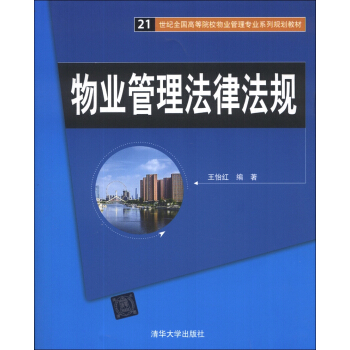

![人類行為與社會環境/高等學校社會工作專業主乾課程教材 [Human Behavior and Social Environment] pdf epub mobi 電子書 下載](https://pic.windowsfront.com/11444456/563c1aa5N46982e2d.jpg)
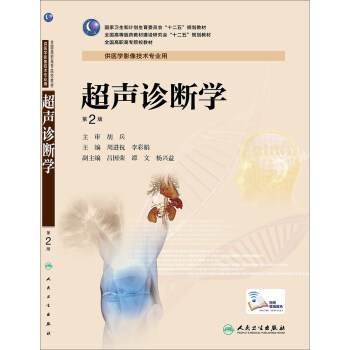

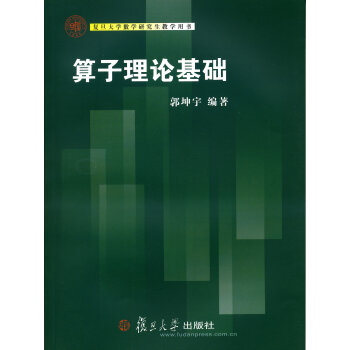
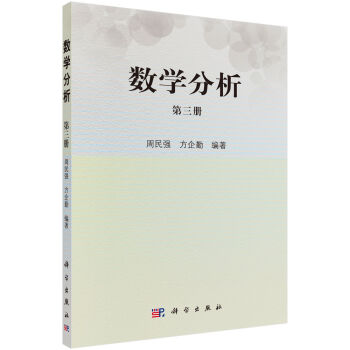

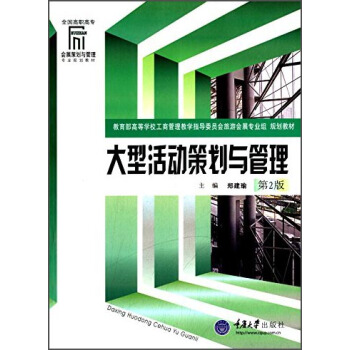
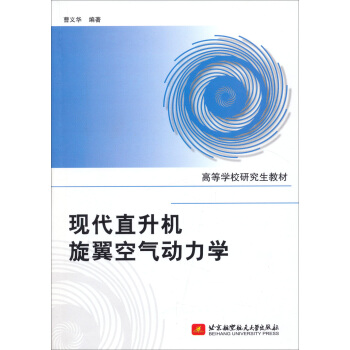
![輔助生殖護理技術/全國輔助生殖技術規範化培訓教材 [Assisted Reproductive Techniques] pdf epub mobi 電子書 下載](https://pic.windowsfront.com/11701338/556ecec5Naea9b985.jpg)
